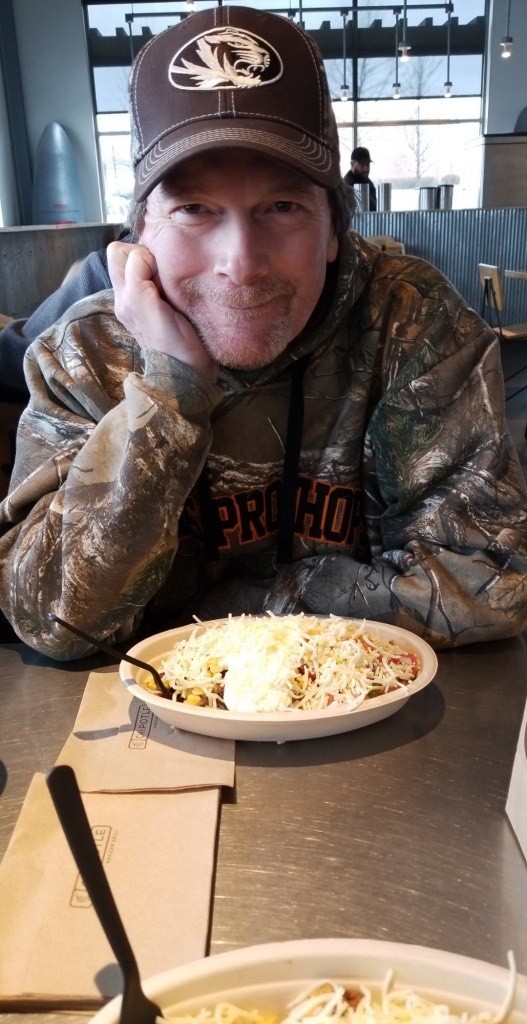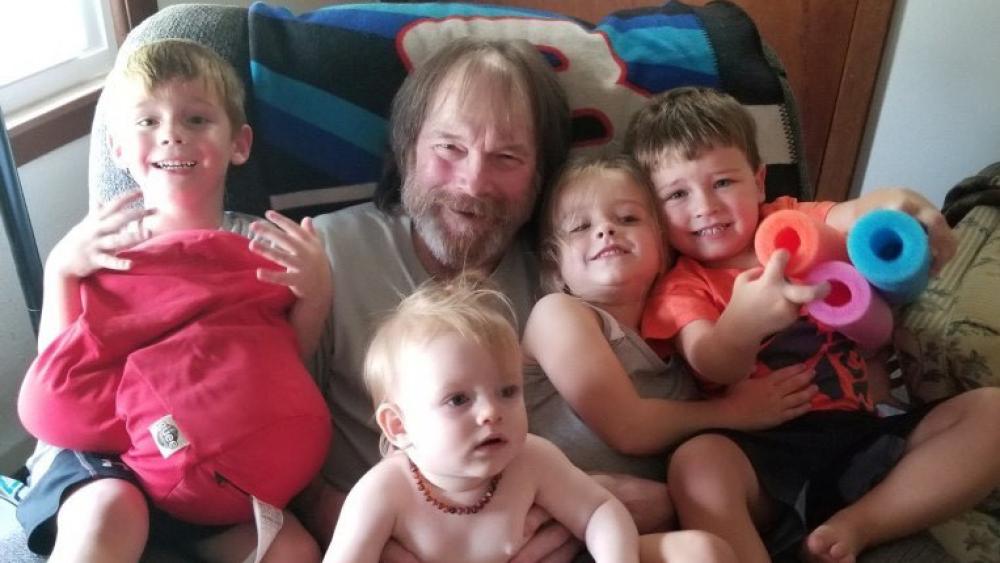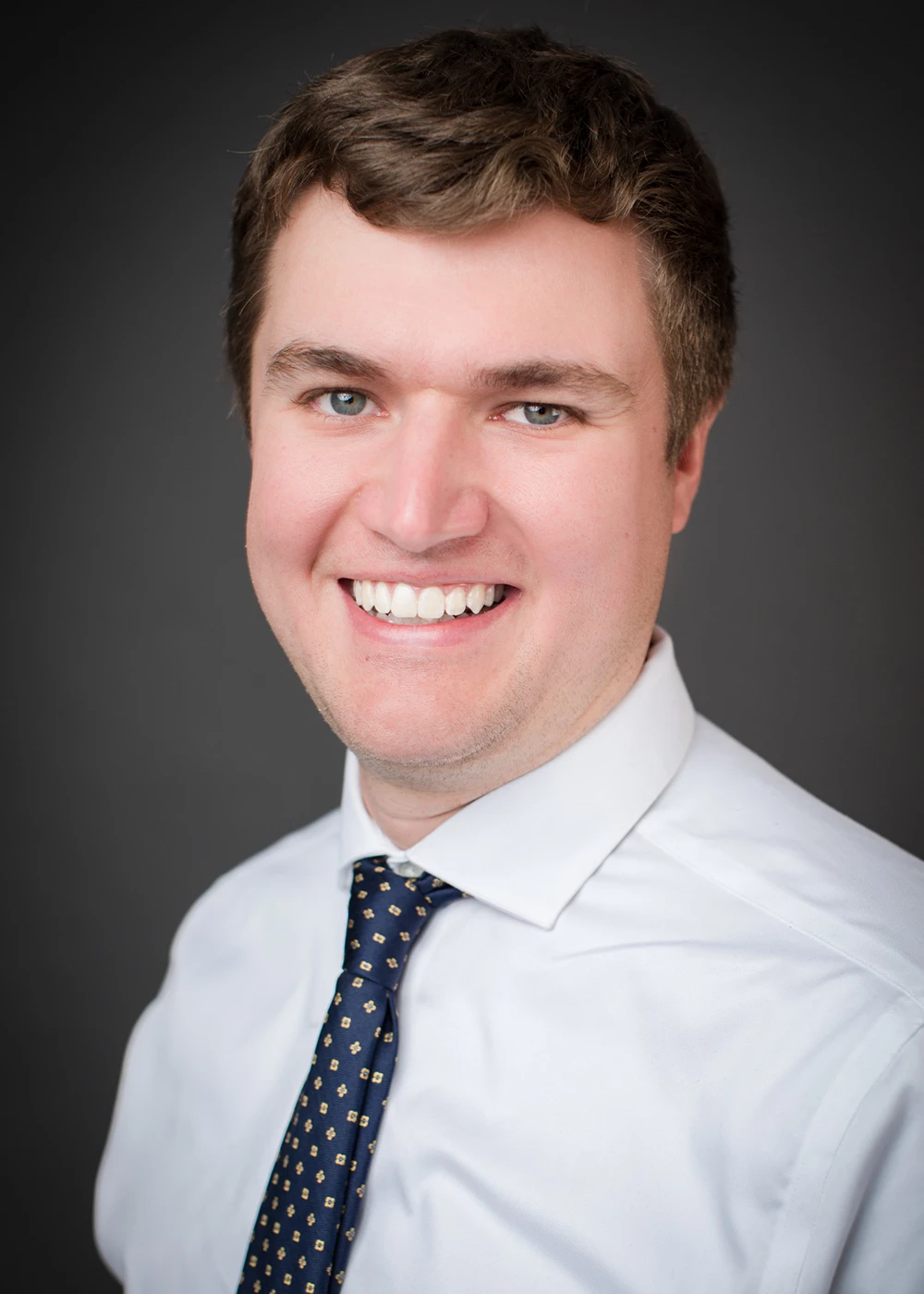





Inspiring Stories
Daughter Shares Impact Jennie Edmundson Staff Made During Father’s Final Days
Published: Nov. 30, 2021

End-of-life situations are never easy to experience. But Kim Mogler knew something was different about the care her father, Richard “Rick” Heard, and her family received at Methodist Jennie Edmundson Hospital during his final days.
“They made sure that not only all of my dad’s needs were met, but they also made sure that any of our needs were met.”
The Little Things
Rick had previously been hospitalized with chronic liver failure, but he recently moved to a nursing home for rehab. In August, Kim received a phone call from the nursing home staff that he had not been feeling well and he asked the staff to leave him alone. They returned to his room a few hours later, only to find him unresponsive, prompting a trip to the nearest emergency department.
“Thankfully, they sent him to Jennie,” Kim said, who began the over 90-mile journey from her home in Bedford, Iowa to Council Bluffs, after hearing that her father was being transported to the Jennie Edmundson Emergency Department.
After Rick arrived at Jennie Edmundson, emergency medicine physician Patrick Costello, MD, personally called Kim from Rick’s bedside, asking for his medical history because Rick had no records with Methodist.
“I know that doesn’t happen often that an ER physician would personally call a family member and take that time to go through questions and get that history when you’re in a critical situation,” Kim said. “Once he got my dad stabilized in the ER, he reached back out to me again and told me what he had done. When you’re 2 ½ hours away and you’re trying to get there as fast as you can, those little things really matter.”
Comfortable In An Uncomfortable Situation

Upon arriving at the hospital, Kim had no plans of being away from her father. Thanks to critical care nurse Jenna Harvey, RN, Kim had a place to sleep without leaving his side. Harvey reclined the chair in Rick’s room as far as it would go and draped a sheet over it.
“I was as comfortable as you get in a hospital setting,” Kim said.
In addition to the makeshift bed, Kim appreciated Harvey’s presence as doctors provided updates.
“Any time the doctors came in, she would sit with me so that when I had questions later, she could answer them,” Kim said. “Or when I would come up with questions when the doctors weren’t in the room, she would write them down, and she would remind me: ‘Remember, you wanted to ask this.’ Or, ‘You had a question about this.’”
Harvey’s kindness and compassion made it apparent that Kim’s father wasn’t just another patient.
“Even the night that she left, she got down right beside his bed and put her face down to his and said, ‘I’ll see you Monday, bud.’ That was awesome for me that she cared so much to do that. I felt like she cared about my dad like it was her dad.”
Unfortunately, Rick passed away before reuniting with Harvey on Monday.
Personalized Care
Sumit Mukherjee, MD, Rick’s critical care physician, knows the importance of building personal relationships with the families of his patients.
“That is something I have also placed an emphasis on because I’ve seen the importance downstream,” he said. “In people’s last moments of their lives, they remember what happens behind the hospital doors and how that process goes, so I think it’s incredibly important.”
Throughout his time as a physician, Dr. Mukherjee has gained an understanding that families with critically ill loved ones are often disoriented and need a safe space. Because of this, he attempts to assure his patients and their families of his empathy for their situation.
“I think that the human aspect of ‘I understand what you’re going through’ is important,” he said. “For them to understand that, as physicians, we may be doing this every day – seeing a lot of death, a lot of people in traumatic situations. But we’re still human, and we still feel their pain and suffering. We try to place ourselves in their shoes – to be able to personalize a situation and make the right decisions.”
One of the hardest decisions Kim was faced with was making a do-not-resuscitate (DNR) order for her dad. What could have been a short chat turned into a much longer two-way discussion.
“He (Dr. Mukherjee) sat down with me for an hour, and he said with 100 percent certainty, ‘I can tell you that your dad would not survive a code right now,’” Kim said. “He went through the process of explaining why – not just saying, ‘We need to make him a DNR because he’s not going to survive,’ and that being it. He then sat with me and tried to explain why he wouldn’t survive a code. I’m a nurse, so I get it. But at that time, you’re not a nurse. You’re a family member.”
While her stay at Jennie Edmundson lasted only a couple of days, Kim knows that she will never forget the ways her father’s care team exemplified The Meaning of Care.
“I couldn’t have asked for better care for him,” she said. “And what they did for us was way above and beyond what they had to do.”
More Resources
- Read more inspiring stories of Methodist patients and providers.
- Learn more about emergency services at Methodist.
- Learn more about the specialties offered at Methodist Jennie Edmundson Hospital.
- Learn more about the importance of advance directives and care planning.


